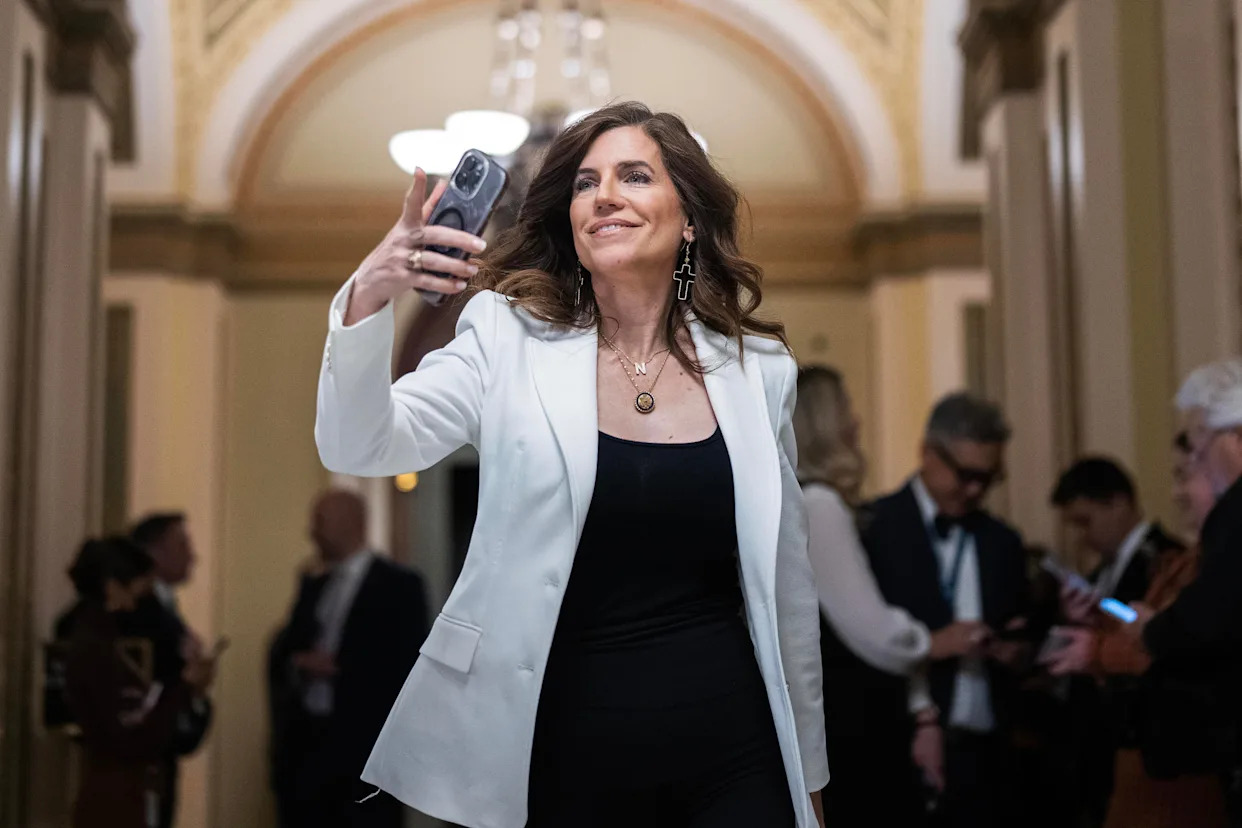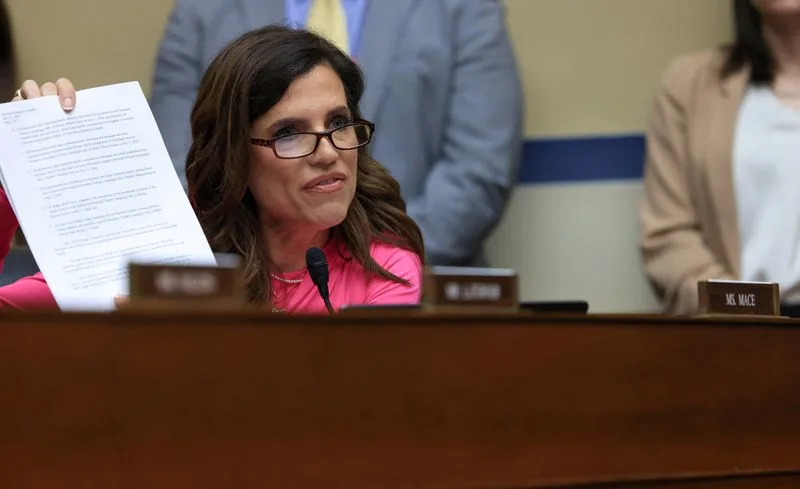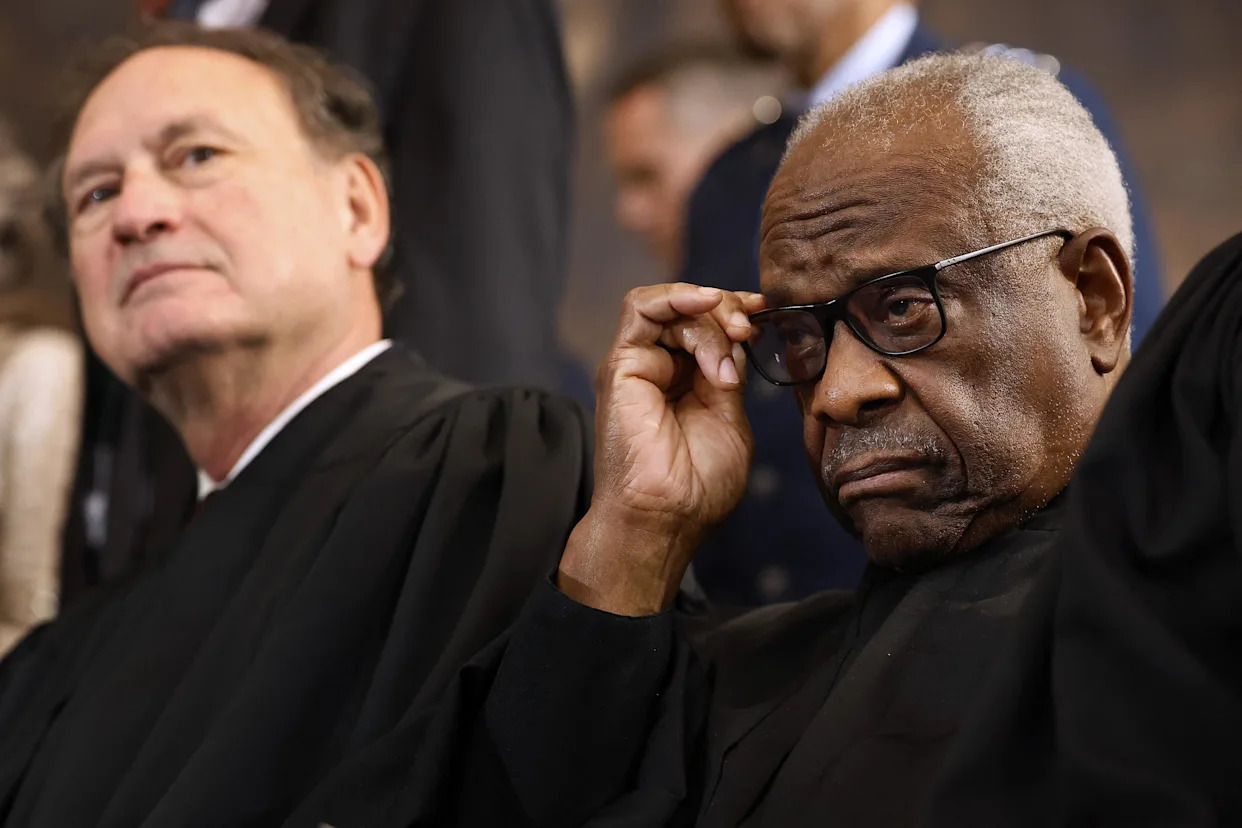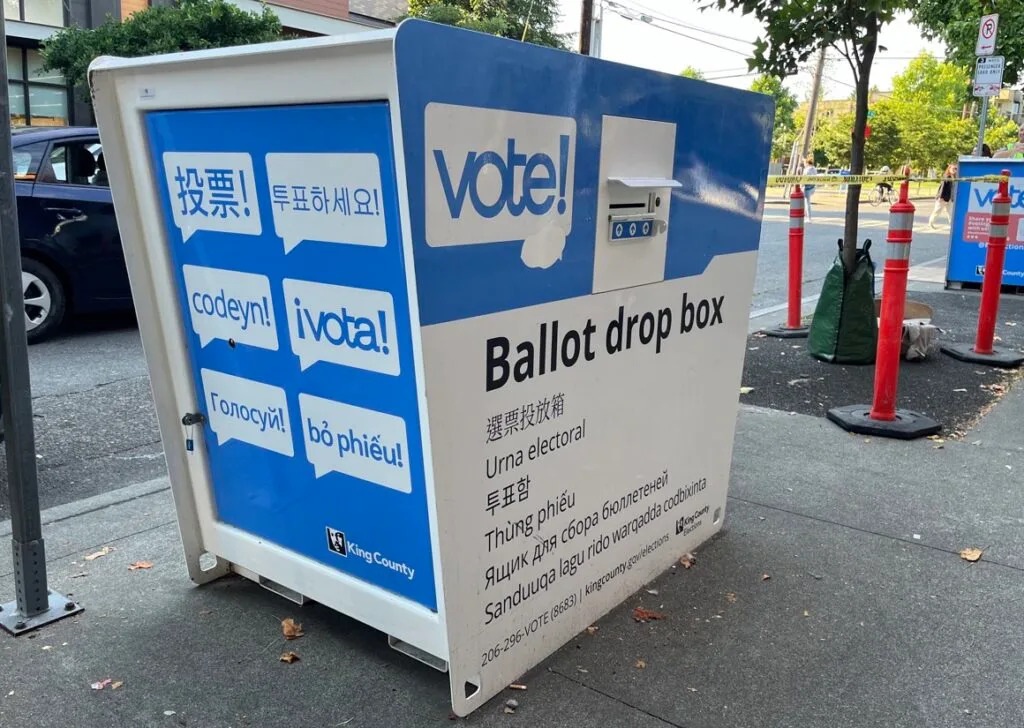
The Virginia House of Delegates during its 2025 legislative session, Jan. 8, 2025. (Photo by Markus Schmidt/Virginia Mercury)
As the battle for Virginia’s House of Delegates heats up, both major parties are zeroing in on a small number of suburban swing districts that could ultimately decide which side holds the majority come January.
Among the most closely watched races this year are contests in Chesterfield, Williamsburg, Chesapeake, Prince William, and Hampton — five competitive districts that reflect broader political shifts in Virginia and where both parties are making heavy investments in money, message, and manpower, according to data from the Virginia Public Access Project.
While Democrats currently hold the majority, their grip on the 100-seat chamber is slim.
With every seat on the ballot this November — along with races for governor, lieutenant governor, and attorney general — the stakes are unusually high. And both sides say they’re ready.
House Democrats are touting historic momentum this cycle, running candidates in all 100 districts for the first time in recent history — including in reliably Republican areas where they haven’t competed in years.
Their campaign arm recently announced a $9 million TV ad reservation, covering the state’s four biggest media markets — Washington, Richmond, Norfolk, and Roanoke — with more than $8.5 million slated for the final three weeks of the campaign.
“This is how we not only protect our majority, but expand it,” said House Speaker Don Scott, D-Portsmouth, in a statement. “House Democrats aren’t just reacting — we’re setting the pace. This ad buy is about making sure voters hear directly from us, early and often, about what we’re doing to protect their freedoms, lower costs, and move Virginia forward.”
Republicans, meanwhile, are focused on the districts most likely to determine the balance of power.
While they’re fielding candidates in 83 districts — short of a full slate — party leaders say that’s by design. They argue Democrats are spreading themselves thin in unwinnable territory, while Republicans are concentrating on a narrower, more winnable map.
“They’ve got candidates in 20 of the reddest districts who are going to raise $1,000 — do you think that concerns us even a little bit?” Republican Party of Virginia Chair Mark Peake told The Mercury. “I don’t think (Democrats) have as much enthusiasm as we do.”
Peake said GOP House Leader Terry Kilgore, R-Scott, is working hard to raise funds and support candidates across the state, particularly in the 10 to 15 districts seen as most contested.
“We are fully competitive in all of those, with fundraising and quality candidates who are well known in their communities and working extremely hard,” he said.
Political analysts say the terrain slightly favors Democrats this year, especially in fast-changing outer suburban areas.
“It’s no surprise that the most competitive districts right now are in Republican hands,” said Stephen Farnsworth, a political scientist at the University of Mary Washington. “This is an environment where Republicans are facing significant headwinds for a bunch of reasons, and that’s creating a tailwind that would help Democrats who, in other years, might be more vulnerable.”
Farnsworth pointed to the suburbs of Chesterfield County and Prince William as key bellwethers.
“The action in this election cycle in Virginia is largely in these outer-ring suburban counties,” he said. “The rural areas tend to be very red, and the urban areas more Democratic. But those transitional places are where Republican fortunes are particularly at risk this year.”
Democrats and Republicans alike agree that a few closely contested races will likely determine the House majority — and perhaps the direction of state government under a new governor.
Here’s a closer look at five of the most competitive House districts in Virginia this year.
House District 75
In a high-stakes rematch, Del. Carrie Coyner, R-Chesterfield, faces Democrat Lindsey Dougherty once again in a district that’s seen its political balance shift in recent years and that is shaping up to be this cycle’s most competitive contest.
Covering parts of Chesterfield and Prince George counties and the city of Hopewell, this district leans slightly Republican, but not decisively.
Vice President Kamala Harris carried it in 2024 with 52.3%, while GOP presidential nominee Donald Trump pulled 46.2%. Sen. Tim Kaine, D-Va., performed even better, winning 54.6% to Hung Cao’s 45.2%. Yet just three years earlier, in Virginia’s previous gubernatorial election, Republican Glenn Youngkin bested Democrat Terry McAuliffe here by a solid 8-point margin.
Coyner, a moderate Republican and attorney who previously served on the Chesterfield County School Board, was first elected in 2019 after defeating Dougherty with 55.1%. She’s known for occasionally bucking her party, notably voting to abolish the death penalty and protect same-sex marriage in Virginia.
Dougherty, originally from Knoxville, Tennessee, has made her mark in Virginia as a dedicated volunteer advocating for children’s health care and support for single mothers.
Coyner enters the fall with a financial advantage, raising $546,436 to Dougherty’s $227,774 — despite Democrats’ broader statewide edge in campaign cash.
House District 71
Del. Amanda Batten, R-James City County, is seeking reelection in a district where the GOP holds a narrow edge — but recent Democratic victories suggest the race could go either way.
The 71st spans parts of James City and New Kent counties, as well as Williamsburg. Harris narrowly won the district in 2024 with 51.5%, and Kaine topped Cao here 52.3% to 47.5%. However, Youngkin beat McAuliffe in 2021 by nearly 8 points, and the area has reliably leaned red in most past cycles.
Batten, first elected in 2019, chairs the House Republican Caucus and leads the “Purple Caucus,” an informal coalition of Republicans in politically vulnerable districts. She previously worked for GOP leaders in the General Assembly.
Her Democratic challenger, Jessica Anderson, is a lifelong Virginian from Newport News with a background in the insurance industry.
This cycle, Democrats are signaling they see an opportunity: Anderson has narrowly outraised Batten, pulling in $356,915 compared to the incumbent’s $305,863.
House District 89
With Del. Baxter Ennis, R-Chesapeake, stepping down after one term, the open-seat contest in District 89 is drawing serious attention from both parties. The district, covering parts of Chesapeake and Suffolk, leans Republican by just over two points — and recent election results paint a mixed picture.
Harris edged Trump here in 2024, 50.1% to 47.2%, and Kaine performed even better, winning by over five points. Youngkin, however, beat McAuliffe by more than 7 points in 2021.
Republican Mike Lamonea, a retired Homeland Security special agent, is facing Democrat Karen Carnegie, an attorney and community activist with deep ties to local civic groups, including the Girl Scouts and the Ruritan Club. Carnegie’s strong community presence and local activism make her a formidable opponent in a competitive landscape.
She’s also ahead in fundraising, with $205,436 to Lamonea’s $194,811 — a tight margin that mirrors the race itself.
House District 22
Del. Ian Lovejoy, R-Prince William, is looking to hold onto his seat in one of the most closely watched matchups in Northern Virginia. He faces a challenge from Elizabeth Guzman, who represented a neighboring district from 2018 to 2024 and is aiming for a return to the House.
District 22 includes parts of Prince William County and leans slightly Republican.
The margins here have been razor-thin. In 2024, Harris edged Trump 49% to 47.9%, and Kaine carried the district by just over 2 points. Guzman, who unseated a longtime Republican in 2017, ran unsuccessfully for state Senate in 2022 but remains a well-known figure in the region.
She’s also leading financially, with $402,989 raised compared to Lovejoy’s $250,858. Lovejoy, a former Manassas City Ccouncil member and small business owner, won his first term in 2023 and is now defending it in what could become a costly, hard-fought race.
House District 86
Del. A.C. Cordoza, R-Hampton, the only Black Republican in the House of Delegates, is in a tough reelection battle against Democrat Virgil Thornton in a district that has become a top target for Democrats. Covering Poquoson, parts of Hampton and York County, the 86th leans Republican — but just barely. In 2024, Harris eked out a win over Trump by 1.1 points, and Kaine took it by a margin of less than 3 points over Cao.
Cordoza won the seat in 2021 and has since attracted statewide GOP support. Concerned about holding the district, Gov. Glenn Youngkin and the full Republican statewide ticket — including Lt. Gov. Winsome Earle-Sears, AG Jason Miyares, and GOP gubernatorial nominee John Reid — recently headlined a joint fundraiser for him in Hampton, despite internal fractions between the candidates.
Thornton, a community leader running on a platform of economic justice and public safety reform, has outraised Cordoza with $149,805 to the incumbent’s $106,283 — another sign Democrats believe this district could be a sleeper flip.








Comments